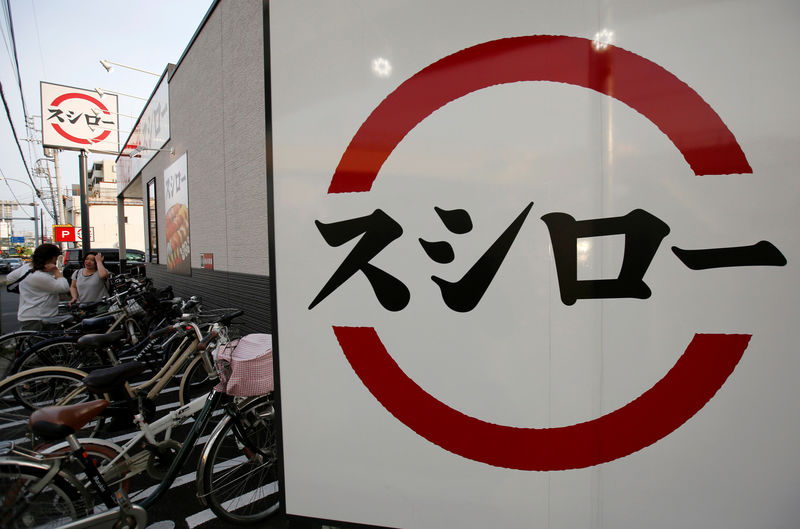By Junko Fujita
TOKYO (Reuters) - From sushi to bean sprouts to mushrooms, global private equity firms are dining on Japan's thriving restaurant scene as they wait for the country's notoriously slow conglomerates to restructure and reverse a slump in major deals.
Europe's Permira (PERM.UL) and U.S.-based Bain Capital are among the buyout firms finding value in the fiercely competitive world of mainly privately-owned restaurants that make Tokyo one of the world's eating capitals.
While they may be small, deals like Carlyle Group's (O:CG) investment in bean sprouts producer GGC Group for an undisclosed amount in March are welcome news after the volume of global private equity buyouts in Japan fell by half in 2015 to well below $1 billion.
"Private equity firms have better chances for success in the food and restaurant sectors in Japan," said Kazushige Kobayashi, the Tokyo-based managing director at Capital Dynamics, a Swiss-based company that invests in PE funds.
"These industries are fragmented so competition is not fierce. Lots of smaller companies means lots of opportunities for M&As, which will help each company to grow."
Permira, for instance, took over No.1 conveyor sushi restaurant chain Akindo Sushiro in 2012 and is now considering a stock market listing, after almost doubling its value thanks to cost-cutting that saved money on fresh tuna by tapping Permira's global network.
The conveyor sushi market grew 7.2 percent to 558.3 billion yen ($5.13 billion) in 2015, according to research firm NPD Japan.
"They can roll out new outlets because they can buy ingredients cheaper by streamlining operations, and advanced technology for food processing enables them to buy fresh ingredients," NPD Japan account manager Takuma Kato said.
Bain had similar success with the flotation of restaurant chain Skylark Co (T:3197) in 2014. For its part, Carlyle is looking to expand GGC Group in China, a bean sprouts market almost 10 times bigger than Japan.
"This is a sign that private equity firms are willing to take risks to source deals," said Soichi Takata, head of private equity at Tokio Marine Asset Management.
Bain last year bought mushroom producer Yukiguni Maitake Co for about 10 billion yen, making its first investment in raw food materials in Japan.
"Areas such as fruit and fresh vegetables are growing pretty nicely these days," Bain Managing Director David Gross-Loh said, citing a trend toward healthier living.
WOK STARS
Tokyo is one of the world's great food cities, with far more Michelin (PA:MICP) three-star restaurants than either Paris or New York. It is also a hive of innovation with new trends constantly appearing, such as standing-only steak houses and high-end hamburger stores.
"There are always new restaurants emerging in various styles in Japan and these are typically set up by entrepreneurs," Permira's chief in Japan, Ryotaro Fujii, said.
Often small, such companies tended to seek outside capital and expertise once they grew to a certain point, he added.
"But they don't want to be absorbed by others because they want to maintain their independence, which is why private equity firms have room to step in," he said, declining to comment on plans for a Sushiro IPO.
In addition, smaller restaurant businesses typically generate stable cash flows while being managed by their hard-pressed founders. This presents buyout firms with potential for growth.
"Businesses are often under-managed," Bain's Gross-Loh said.
Carlyle Group , KKR & Co (N:KKR), TPG Capital Management (TPG.UL) opened offices in Japan in early 2000s, hoping to grab multi-billion deals through corporate carve-outs.

But the value of deals by buyout firms in Japan halved to $600 million last year from $1.16 billion in 2014, according to Thomson Reuters.